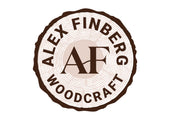Engaged Ecology
I am delighted to be back at Schumacher College this year to teach spoon carving on the second year of the Engaged Ecology Masters Programme.
In Schumacher's terms Engaged Ecology is a 'new experiment in embodied learning for students looking to reconsider their relationship with the more-than-human, and find solutions to the environmental and social crises of our time'
In a departure away from abstract and heady academia, this course is about engaging students in practices and crafts which engage them with the natural world and explore our interconnected place within the circle of life on earth:
"Throughout this radical programme we give students the space to learn experientially, to reflect on what they’ve done, to consider abstract theory, and to experiment with new possibilities. Students will be able to draw on and immerse themselves in the rich history of growers, makers, craftivists, radical thinkers, social entrepreneurs, pedagogues, adherents of alternative spiritualities, not to mention the land itself, that together comprise the Dartington experiment."
Read more about Schumacher College here and the Engaged Ecology MA here.
(Excerpt from Schumacher's Website:)
The course asks three fundamental questions:
What is place? Who are we? And, what, then, can we do?
WHAT IS PLACE?
If the climate crisis is too enormous a problem for any of us to grasp, we all nonetheless have a relationship to place, the immediate world about us. Through various ecological practices of deep observation and immersive engagement, through making and theoretical reflection, we will question what we mean by place and discover the historical, economic, cultural and ecological entanglements that together create a sense of place. We will discover for ourselves the meaning of terms like ‘ecology’, ‘nature’, ‘anthropocene’, ‘Gaia’, ‘participation’, ‘craft’, and ‘self’.
By developing competence in various practices of making we will explore cultures of production. The exact practices will vary according to availability, but might include weaving linen fabric that’s been grown from seed and prepared at every stage by hand; or felling a tree to hand carve a cup, a spoon, or a bowl; or writing, designing, typesetting and printing a magazine. How do these practices enrich our understanding of, or highlight our dislocation from, place?
Rather than approaching these questions from an epistemological framework of ecophilosophy, Engaged Ecology builds a scaffold through the radical assertion that higher education must first and foremost be a physical engagement with our shared socioecological/material world. It is through first-hand experience of place that we build an immersively tactile ontology that will serve as the foundation for the conceptual framework we develop through the arc of the programme.
WHO ARE WE?
Using various practices, so-called ‘technologies of the self’, we will examine what we mean by ‘the self’. Can there ever be an ecological self, or are we ordained by biology, or culture, to be atomistic individuals? What happens if we entertain indigenous or posthuman ideas in which the boundaries of the self are regarded as porous? What role does spirituality play in shaping or shaking up the self? Why is it that as social beings, who come together in community, we exclude even as we include, on the basis of sexuality, gender, race, class, ability, or species even? How can we (can we even?) reconcile living in community with a decentralization of human identity? Can we fully permeate the boundary between ego and eco? By living, learning and working together in community, here at Schumacher, we will ask what we mean by community and consider how it could be done differently in the world.
WHAT CAN WE DO?
Finally, we challenge students to address how they can best act in the world. We examine theories of change, movement building, and non-violent direct action and ask if there are different ways of being ‘activists’ that do not replicate the very thing we are trying to change. Must change always involve opposition? Is there such a thing as post-activism? The final project or dissertation gives students the opportunity to dive deeply into these questions and to begin to envisage a career path after graduation.
Throughout this radical programme we give students the space to learn experientially, to reflect on what they’ve done, to consider abstract theory, and to experiment with new possibilities. Students will be able to draw on and immerse themselves in the rich history of growers, makers, craftivists, radical thinkers, social entrepreneurs, pedagogues, adherents of alternative spiritualities, not to mention the land itself, that together comprise the Dartington experiment.
Engaged Ecology is the cutting edge of Environmental Humanities, an interdisciplinary arena that brings together leading progressive thought within science and the humanities to address the great problems of our age.

